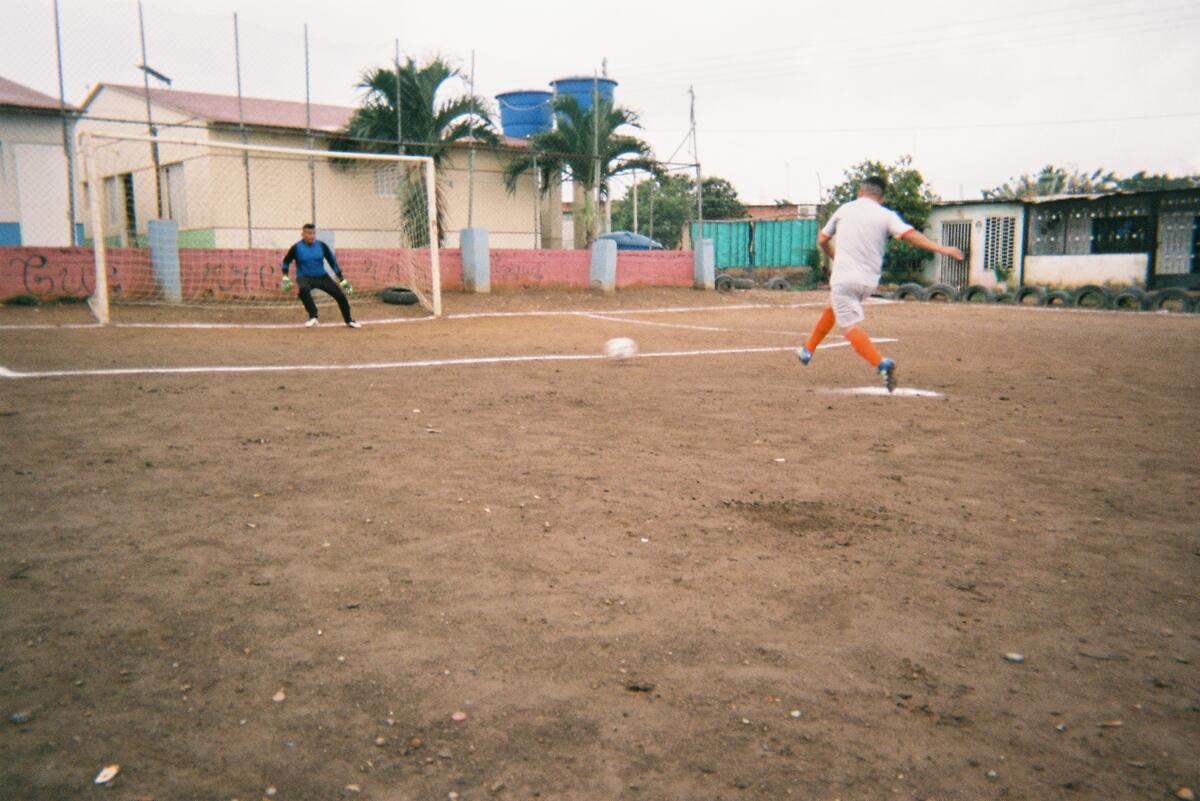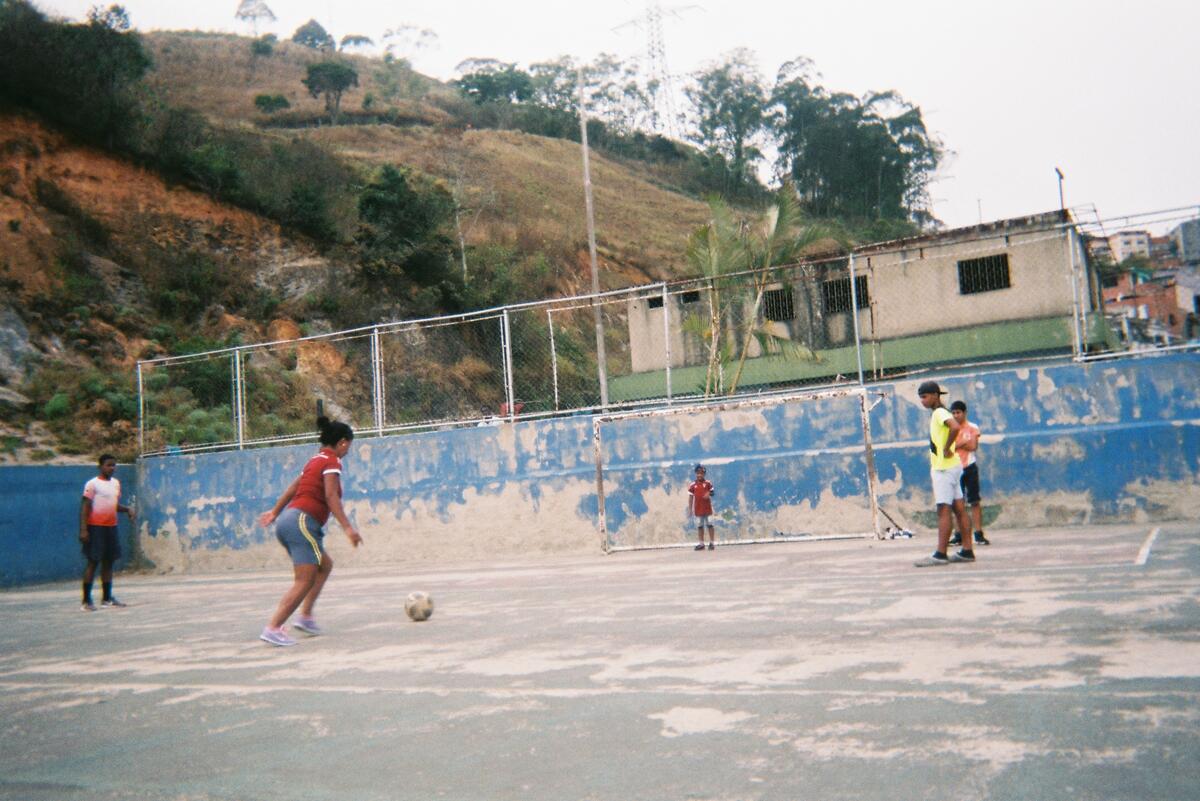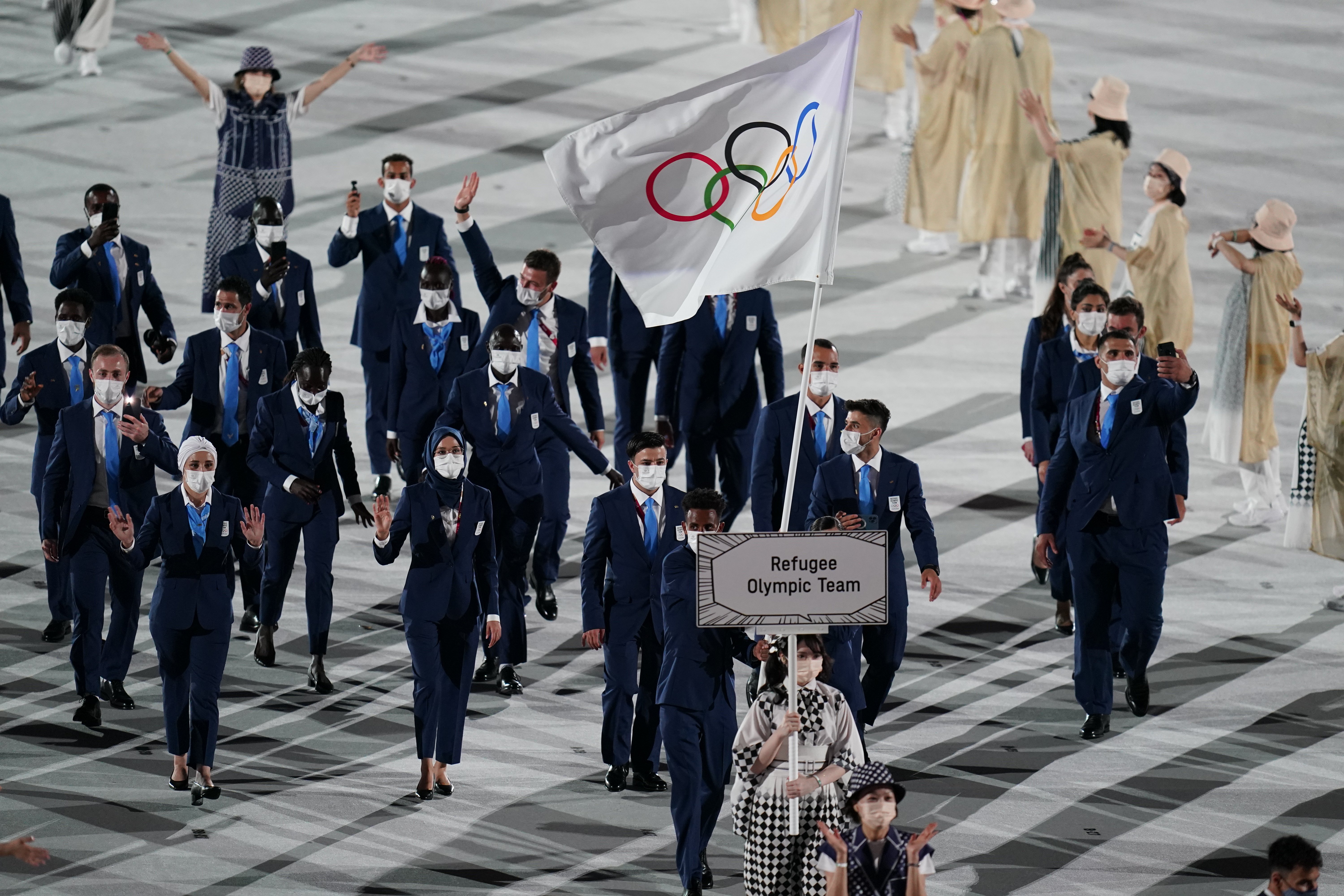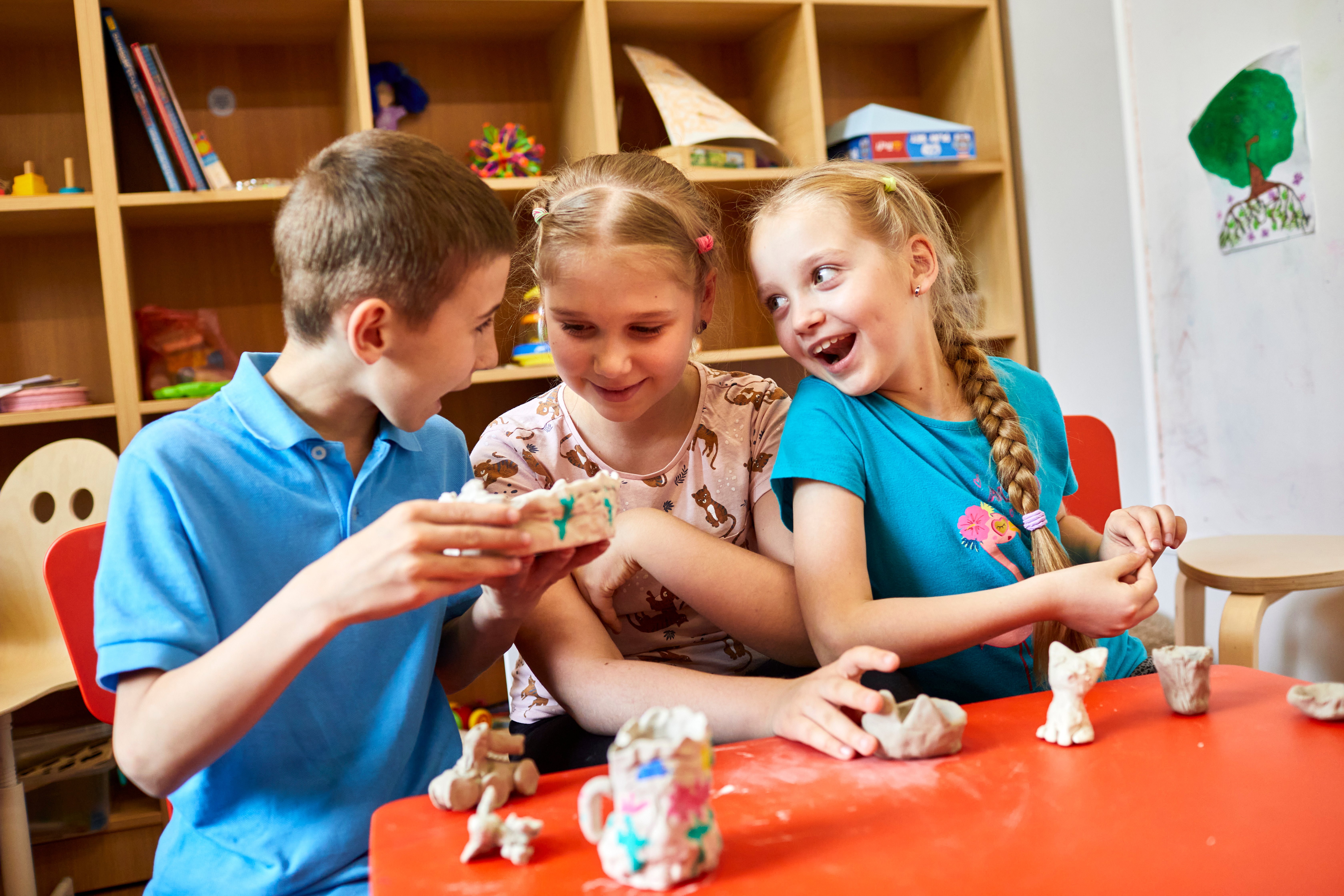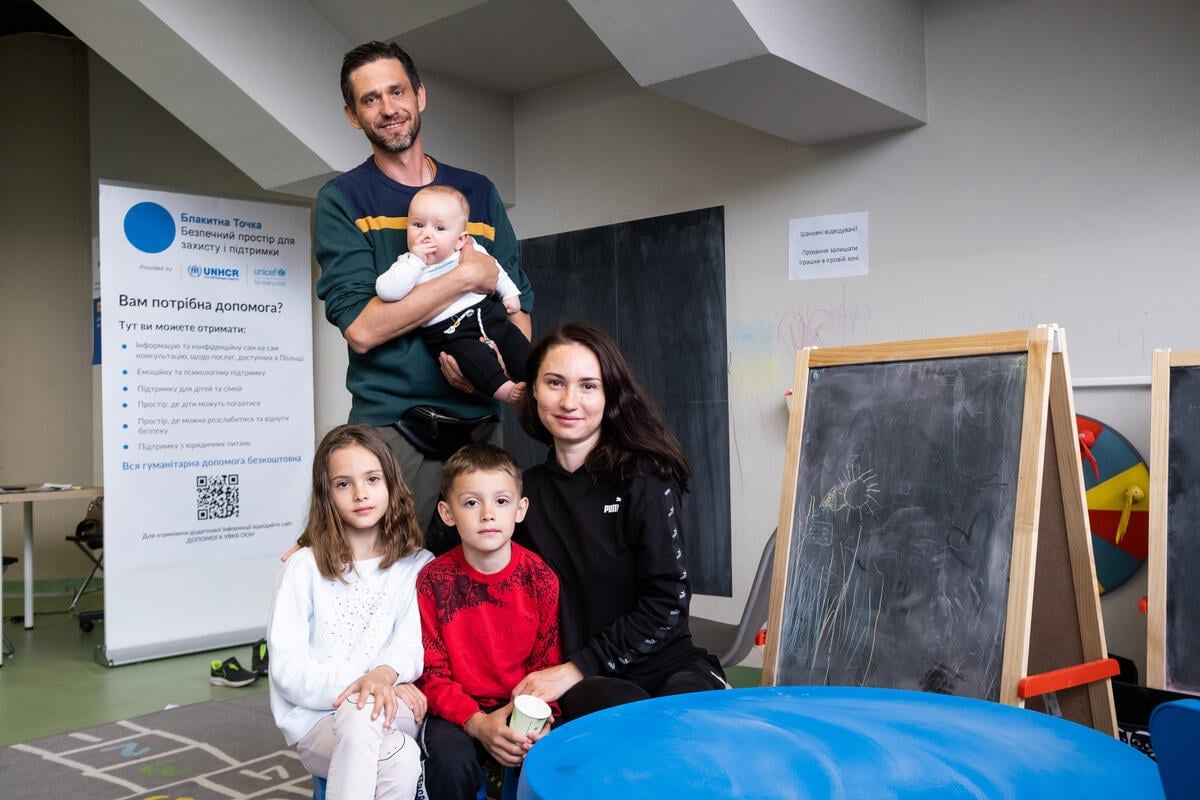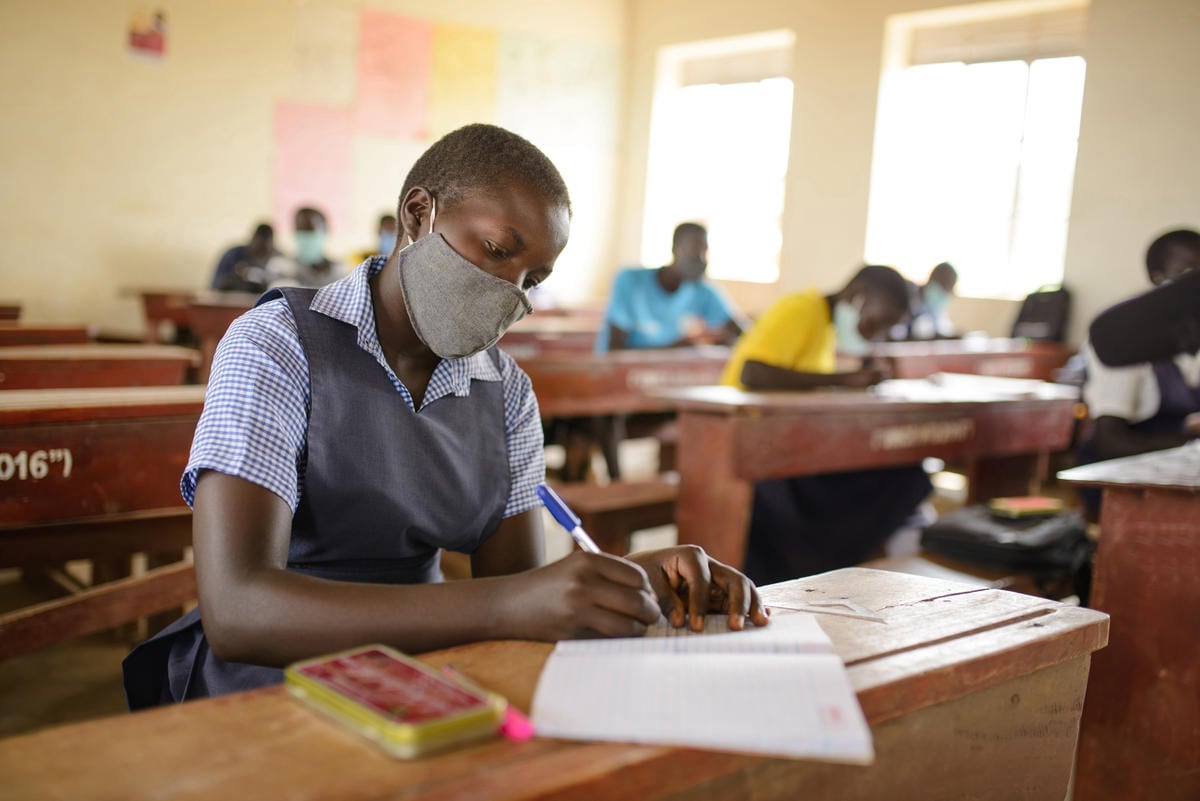A shot at sports for Afghan children in the Shomali Plain
A shot at sports for Afghan children in the Shomali Plain

SHOMALI PLAIN, Afghanistan, Nov 9 (UNHCR) - The Mirbacha Khan School, in the Shomali Plain north of Kabul, is thriving again.
For years, the education system in Afghanistan had virtually collapsed, girls were not allowed in the few schools that functioned, and many Afghan children lived in exile. Now the refugees have come back, and Mirbacha Khan houses both a girls' and a boys' school. With so much to catch up on, sports have not been a high educational priority until now, but that is something the authorities, and especially the Afghan section of the International Olympic Committee, want to change.
UNHCR, in cooperation with the Afghan national Olympic Committee, arranged to give out a large number of sporting goods - including softballs, soccer and volleyballs - to the children of Mirbacha Khan and 12 other schools in the Shomali Plain in late October. The area is home to a large number of returning refugees, and an official of the Ministry of Refugees and Repatriation thanked UNHCR for organising the distribution. The items were donated by Sporting Goods to Go!, an international consortium of sports manufacturers, national Olympic committees and leading non-governmental organisations dedicated to promoting access to competitive sports and recreational activities for children in developing countries.
"Children everywhere in the world should be encouraged to take part in sports, and it is especially important here in Afghanistan, where for so long children were deprived of so much," said Stig Traavik, advisor to the Afghan Olympic Committee.
For the first time in 12 years, Afghanistan took part in the Olympics Games this summer, and the team of five Afghan athletes who represented their country in Athens attended the distribution ceremony. All stressed the importance of sports for children, as a recreational activity and a source of pride, in themselves and their nation.
Among the five-member team were two women, Robina Mogeemyar, who ran in the 100-metre race, and Feriba Rizai, a judo practitioner. It was the first time in the Games' long history that Afghanistan had sent women to compete. For the two women, it was the realisation of a dream they had not even dared to have. Feriba's story is an indication of how much has changed for Afghan refugees in the past few years.
Until only three years ago, 17-year-old Feriba was one of three million Afghan refugees in Pakistan. She was only seven years old when her family left Afghanistan, fleeing the Taliban's advance on Kabul. She remembers the trip to Pakistan as a very traumatic time, and the following years as very hard for the entire family. From a very early age, she had loved sports, but with no money and very few opportunities for girls, she believed that her dream of becoming an athlete would never come true.
"All the time I was in Pakistan, I hoped that one day I would go back to Kabul, and be able to practise a sport. I liked boxing and judo. But I never thought it would happen."
Inspired by the films of kung fu star Jackie Chan, Feriba enrolled in a judo club as soon as she came back to Kabul with her family in early 2002. She has worked hard and done very well, but is still only a brown belt in judo, and competed in Athens by special invitation of the International Olympic Committee. She never really expected to win, and was beaten by her Spanish competitor in the first round.
"Although I lost, it gave me such pride to represent Afghanistan, to see the Afghan flag flying among all the other flags. And especially, it gave me pleasure to be there, for all the women of Afghanistan, who have had no rights for such a long time."
Today, Feriba is a student at Kabul's High School, and spends two hours a day training. "Watching athletes from other countries," she said, "I realise that two hours is not enough. Here in Afghanistan, we are lacking in resources for sports, and it is definitely worse for women."
Yet the teenager is hopeful, not only for her own future sporting career but for all women in Afghanistan. "Since I have come back from the Olympics," she said, "more than 20 girls have approached me to join the judo exercise. I think it is a good sign that so many women are interested in sports."

And Feriba has other ambitions too. After she has won a gold medal, she wants to become a politician and play a role in the democratisation of her country.
"Women have always been ignored and are always told what to do. Now we have a chance to change that, and I can think of nothing more important to do with my life than to help bring about this change."
She hopes that helping girls like the students in the Shomali Plain gain access to sporting activities, through donations and other initiatives, will encourage many more to follow in her tracks and forge a new future for Afghan women.


